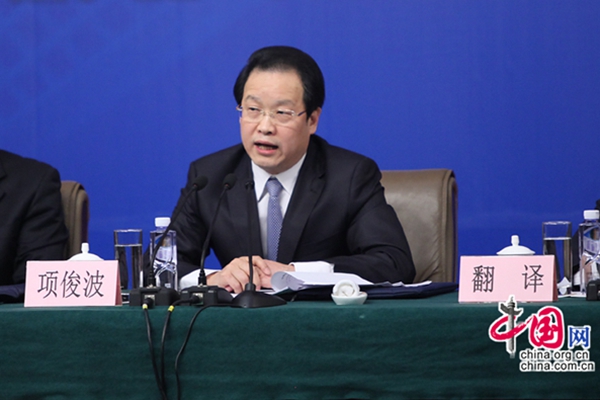|

|
|
Chairman of the China Insurance Regulatory Commission Xiang Junbo [Photo/China.org.cn]
|
Xiang Junbo, chairman of the China Insurance Regulatory Commission, is under investigation by China’s top anti-graft authority, according to an online statement published on Sunday.
The Central Commission for Discipline Inspection of the Communist Party of China said in its online statement that Xiang was being investigated for suspected serious violation of the Party’s code of conduct.
The investigation began after China’s top leadership vowed to contain systemic financial risks.
Xiang, 60, has headed the insurance commission and served as a member of the monetary policy committee of the Chinese central bank since 2011.
The insurance regulator under Xiang had stepped up the crackdown on the radical acquisition of listed companies by the insurers and their risky and highly leveraged investments using short-term proceeds from sales of high-yield policies.
Xiang told a news conference in February the insurance sector should not be the “club of the rich” or a “hideout for financial titans”.
He also warned that the regulator will “severely punish” short-term speculation by insurers and their hostile takeovers of listed companies’ stakes.
His agency also banned Chinese business tycoon Yao Zhenhua, chairman of the private conglomerate Baoneng Group, from the insurance industry for 10 years for illegal investments.
Xiang oversaw the rapid growth of China’s insurance sector, with total assets reaching 15.1 trillion yuan ($2.19 trillion) at the end of 2016, tripling since its assets reached 5 trillion yuan in 2010.
Xiang, one of the most prominent financial regulators in China, served as deputy governor of the People’s Bank of China between 2004 and 2007. Later he served as the chairman of the Agricultural Bank of China, one of the big five State-owned commercial banks. He oversaw the shareholding restructure of the bank, listed in Shanghai and Hong Kong in 2010.
Xiang also had extensive experience in auditing and served as the deputy auditor-general of the National Audit Office.
Separately on Sunday, the top anti-graft authority also announced the investigation of Li Changjun, former Party chief and president of the Beijing Branch of the Export-Import Bank of China, for suspected serious violation of the Party’s code of conduct.
